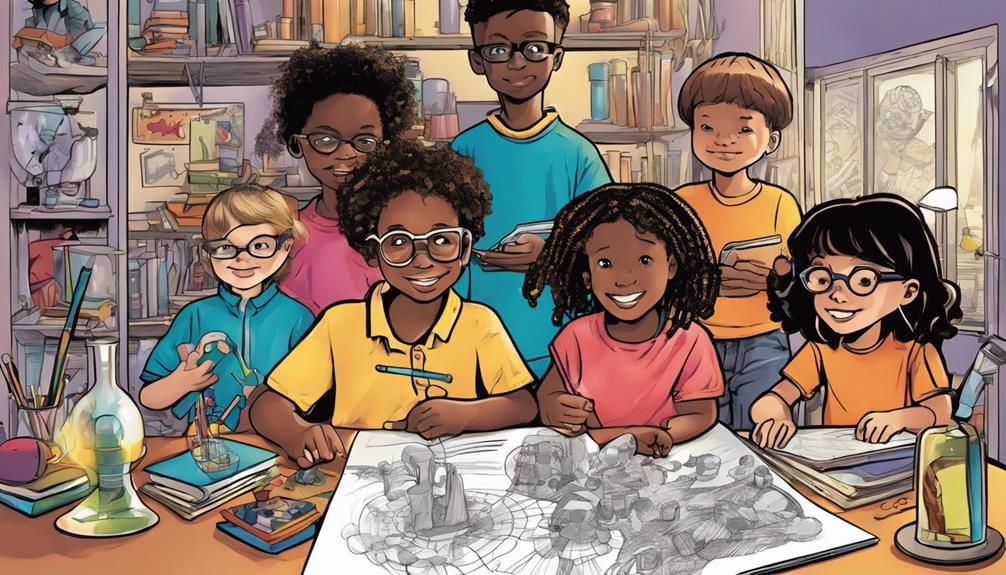Experiencing fatherhood transforms your life. It brings a mix of happiness, obstacles, and affection. As you embark on this journey, feeling a combination of excitement and nerves is common. Remember, you have support along the way.
Many new dads look for guidance on this journey. That’s why we’re here to help.
We’ve created a guide with tips and advice for new fathers. It will help you become confident in your new role. You may be reading up on parenting, talking it over with your partner, or figuring it out as you go. This guide will support you at every step.
Key Takeaways:
- Fatherhood transforms you and needs you to be there, both emotionally and physically.
- Working well with your partner is key to parenting success.
- Getting your home ready, balancing work and life, and planning your finances are crucial.
- Looking after your mental health and having a support network is important for facing challenges.
- Being a dad means taking an active role in parenting and caring for your partner.
Embracing Your Role as a Father
As you start your fatherhood journey, it’s key to fully embrace your role. Understand the big effect you have on your child’s life. Becoming a dad changes you, bringing joy, challenges, and chances to grow.
Being a good dad means more than sharing duties. It’s about being there, emotionally and in everyday life. Even if sometimes your child seems closer to your partner, keep being active, supportive, and attentive.
Talking openly with your partner is vital. Discuss your thoughts, worries, and dreams together to build a strong team. This way, you can make a loving home where your child grows well.
It’s important to connect deeply with your child for their emotional and thinking growth. Do bonding things like changing diapers and giving baths. These caring actions build a lifelong strong bond.
Being a dad is not just about caring for your child. It means being their support, guide, and giving them constant love. You make fatherhood meaningful by embracing it with energy and commitment.
| Stages | Actions |
|---|---|
| Pregnancy | – Attend prenatal appointments and childbirth classes together |
| Postpartum | – Provide emotional and practical support to your partner – Engage in newborn care tasks like changing diapers and giving baths |
| Infancy and early childhood | – Establish a routine for quality bonding time – Read, play, and explore the world together |
| Toddlerhood | – Create a safe and stimulating environment for exploration – Foster their independence while setting boundaries |
| School-age | – Encourage their interests and engage in their education – Be an active presence in their school activities |
By taking an active part in parenthood, you not only shape your child’s future. You also create lasting, cherished memories.
Learning the Basics of Fatherhood
Getting ready for your baby means learning about being a dad. It’s key to know baby care basics early. This knowledge boosts your confidence and helps bond with your baby. Mastering skills like diaper changing will prep you to care for your baby’s needs well.
Studies highlight the good kids do when dads are involved. Being an active dad can fix many community problems. So, wondering where to start learning?
Resources for Learning
Matthew McConaughey, a famous actor, talks about dads’ role in child care and development. He says being an involved father helps his 14-month-old son become smarter and craftier. Knowing the basics is vital for your child’s growth and safety.
1. The internet offers loads of advice on baby care. You’ll find websites, blogs, and forums full of guidance. They cover everything from changing diapers to calming a crying baby.
2. Parenting classes for dads are available. These classes let you practice baby care skills with experts’ help. They’re a chance to learn and gain confidence alongside other dads.
3. Many books offer insights into parenting. Look for ones that deal with a variety of topics. These can range from diaper changes to baby sleep patterns.
Essential Baby Care Skills
Having a good grip on baby care is crucial for new dads. Here’s what to focus on:
- Diaper changing: Know how to change diapers cleanly and quickly. Get the hang of what supplies you’ll need and how to use them properly.
- Burping: Learning the right way to burp your baby is important. It can ease their discomfort and prevent spit-ups.
- Swaddling: Being able to swaddle your baby right can make them feel secure and sleep better.
- Bathing: Know how to bathe your baby safely. Bath time can be fun and a great chance to bond.
- Feeding: Understand the basics of breastfeeding or bottle-feeding. Knowing how to feed your baby properly makes meals comfortable for them.
Remember, each baby is different. Be patient as you learn what works best for your child. These skills don’t just help your baby. They also make your bond as a father stronger and improve your baby’s well-being.
With strong basics in fatherhood, you’re ready to be a great dad. Always feel free to get advice from other dads, parenting pros, and health experts. They can help you on your dad journey.

| Benefits of Learning Baby Care Skills | References |
|---|---|
| Involved dads lead to smarter kids with better emotions and social skills. | Xu Y., Huang H., Cao Y. (Associations among Early Exposure to Neighborhood Disorder, Fathers’ Early Involvement, and Children’s Internalizing and Externalizing Problems) |
| Great dads mean kids grow up with more job opportunities, smarter, and happier. | Philpott, L. F., Leahy-Warren, P., FitzGerald, S., & Savage, E. (Stress in fathers in the perinatal period: A systematic review) |
| Dads who struggle with their feelings often have kids with emotional problems. | Daniel N. (Why do some dads get more involved than others? Evidence from a large British cohort) |
| Having a supportive parenting partner is key for a child’s behavior. | Yoon, S., Kim, M., Yang, J., Lee, J. Y., Latelle, A., Wang, J., Zhang, Y., & Schoppe-Sullivan, S. (Patterns of Father Involvement and Child Development among Families with Low Income) |
| Kids do better when their parents have a healthy relationship. | Karberg, E., & Cabrera, N. (Family Change and Co-parenting in Resident Couples and Children’s Behavioral Problems) |
| Fatherhood has lasting positive effects on men’s health. | Kotelchuck, Milton. (The Impact of Fatherhood on Men’s Health and Development) |
Communicating with Your Partner
Effective communication is key to navigating fatherhood challenges. Open and honest talks about parenting can strengthen your bond. It creates a supportive environment for you both. By discussing parenting, you share thoughts, worries, and experiences. This helps make decisions that are good for the family.
It’s crucial to support your partner after the baby arrives. Your partner might feel many emotions. Listen, validate her feelings, and be there for her. Encourage her to talk about her concerns or fears. Provide emotional support. Remember, communication goes both ways. Make sure she feels safe to share and be a good listener.
It’s important to talk about parenting with empathy and understanding. Recognize that you both might see things differently. Respect each other’s views and don’t dismiss their ideas. By working together and respecting each other’s thoughts, you can agree on what’s best for your family.
Research suggests that informed and involved dads have more satisfying relationships and parenting experiences. Don’t just rely on your own upbringing to guide you. See this as a chance to learn more about parenting. Look into resources like books, online courses, or classes. They can teach you a lot about child development, communication, and handling misbehavior.
“The willingness of men to be influenced by their female partners is a key factor in happy and lasting relationships and successful parenting after the arrival of a baby.” – John Gottman
Parenting duties should be evenly shared. Don’t stick to old gender roles where one does most childcare and home tasks. Be involved in parenting. Help with chores and be emotionally present for your partner and kids.
Putting communication first, supporting your partner, and engaging in parenting lays a strong foundation. It creates a caring environment for your children.

Taking Care of Your Mental Health
Becoming a father is exciting and full of surprise. Yet, it’s vital to note that it can be tough emotionally. Looking after your mental health is key in handling fatherly duties and having a great parenting journey.
It’s important to manage stress well. New dads often feel stressed out. Trying to juggle work, home, and a baby can be hard. It’s fine to ask for help and share tasks. Taking care of yourself is a must, not just a luxury.
Self-care means doing things you enjoy and find relaxing. It could be outdoor activities, a hobby, or deep breathing exercises. When you feel good, you can better look after your child and partner.
It’s also important to know about postpartum depression, which affects dads too. A study by Verywell Mind and Parents found that 21% of US men faced it in their baby’s first year. Watch for signs like ongoing sadness, eating or sleeping too much or too little, tiredness, quick to anger, and feeling hopeless. If you or your partner show these signs, it’s key to get professional help.
Talking openly with your partner about feelings is crucial. Sharing your worries can make your relationship stronger and offer support. You’re not on this path alone. Seek help from friends, family, or groups as you need it.
By focusing on your mental health and practicing self-care, you’re teaching your child something valuable. You’re building a loving environment for everyone. Fatherhood is wonderful and caring for your mental health lets you enjoy all its moments.

Nurturing Your Relationship with Your Partner
When you become a dad, keeping your relationship strong with your partner is key. A baby brings happiness but also challenges. By staying close and supportive, you build a solid base for your family.
About 60-70% of new parents feel unhappy at times after their baby’s birth. Remember, bonding doesn’t happen right away. It grows over time. Dads can bond with their baby through skin-to-skin contact. This touch helps in feeling connected.
Dads should help with feeding and settling the baby. These activities help you bond with your baby. Talking to and about your baby is also good. It builds familiarity and connection.
Being a new dad can be tough. If you feel overwhelmed, it’s okay to get help from a professional. It’s important to be open about your struggles. This openness helps you and other dads feel supported.
Sometimes dads feel unsure of their parenting skills. They might pull away or focus on work. But, spending quality time with your family is crucial. Make the most of paternity leave and family moments.
Moms can help dads feel more involved. They can set up special times for dads and kids to bond. Talking openly with your partner helps strengthen your family. Sharing your thoughts and worries makes your bond stronger.
Stacie Cockrell says the first three months with a newborn can strain relationships. It helps to plan for these challenges. Discussing things like delivery room plans and dealing with in-laws can make things smoother.
| Expert Insight | Key Takeaway |
|---|---|
| Brad Wilcox | Over the last 30 years, there has been a shift where women expect men to provide more support on the homefront when a baby arrives. |
| Andrea Battiola | Roles of nurturing mom and provider dad are changing, and parents today are functioning in work mode during the day and parent mode in the evening. |
| Couples therapist Keith Miller | Exhaustion and increased responsibility can lead both partners to become disinterested in sex after having a baby. |
| Stacie Cockrell | Warns about the potential clash between in-laws after a baby is born and the competition for alpha-grandma status among grandmothers. |
| Stacie Cockrell | Suggests creating a family management plan to address issues like who will be present in the delivery room and how to handle interactions with in-laws. |

Managing Work-Life Balance
Being a working dad means trying to do well at your job and as a parent. It’s key to find a balance that lets you care for your family and do your job well. Luckily, there are ways to make this easier.

One way to manage is by looking into flexible work schedules. Now, many places understand that working parents need this. They might let you work from home, choose your hours, or work fewer days that are longer. Talk to your boss about making a schedule that gives you more family time without hurting your career.
Parental leave is also very important. It’s crucial to spend time with your newborn and help your partner. Although not every company offers paid leave for dads, more are starting to. Companies like Netflix, Etsy, Facebook, and Twitter give generous leave. Look into what your company offers for this special time.
Having a supportive work environment helps a lot too. Find other working parents to share tips and support with. It feels good to know others are in the same boat. Companies are also doing more to help dads balance work and family life. See what kind of help your job offers.
| Company | Paid Paternity Leave |
|---|---|
| Netflix | Up to one full year |
| Etsy | Six months |
| Four months | |
| 20 weeks |
| Statistics | % of Parents |
|---|---|
| Procrastinate on assembling baby furniture | 70% |
| Deviate from having their baby sleep in a defined space | 85% |
| Encounter difficulties in agreeing on a division of labor for child-related tasks | 60% |
| Purchase an excess of baby clothes that are not seasonally appropriate | 80% |
| Struggle with deciding between disposable and cloth diaper systems | 75% |
| Do not have a month’s worth of baby-care essentials stocked up | 50% |
| Do not have freezer meals prepared before the baby’s arrival | 65% |
| Overlook low-level baby-proofing tasks | 40% |
| Engage in a deep clean of their living space before the baby arrives | 30% |
| Do not bring all their accounts current before the baby is born | 55% |
| Struggle to maintain physical intimacy with their partners during the preparation period for fatherhood | 75% |

Financial Planning for Fatherhood
Having a child is a life-changing joy, but it also means more bills. Getting ready financially for fatherhood means thinking about the costs. These include daily expenses and saving for big moments in your child’s life.
The U.S. Department of Agriculture says bringing up a child costs over $284,570 for a middle-income family. That’s about $15,000 a year, or $43 a day. Knowing these costs is key to planning your family budget.
When planning your baby’s budget, include costs like diapers, clothes, and food. Don’t forget money for fun activities, school, healthcare, and car rides. Save for these so you can support your child as they grow.
Being a great dad isn’t about earning the most money. It’s about having a reliable income to provide a safe and loving home. This matters more than how much you make.
It’s also your job to teach your kids how to handle money. Show them the value of hard work, saving, giving, spending wisely, and being thankful. These lessons will help them with money later on.
Life insurance is a key tool in protecting your family’s future. It helps take care of them financially if something happens to you. This way, they’re covered even if you can’t be there.
Good financial planning looks ahead. It includes saving for college, budgeting for different life stages, and setting goals to keep your family secure.
As a dad since 2017, I’ve learned about the costs and rewards of fatherhood. It’s about more than late nights with a newborn or balancing work. It’s about preparing financially for your child’s needs.
Some people think dads could do more at home or spend more time with their kids. This article highlights the importance of financial planning with the growing costs of raising children. Focus on increasing your income and savings for your family’s future.
When looking for work, find a job that gives you time with your family. Check out paternity leave options and jobs that offer flexibility in the beginning. Being there for your child early on is crucial.
In your child’s first years, try to be as involved as possible. This sets up a stable and loving environment for them to grow in.
Meeting other dads can be really helpful. It gives you support and advice from people who understand what you’re going through. Sharing experiences can make fatherhood easier.
Reading about being a dad can boost your confidence. Books like “The New Father: A Dad’s Guide to the First Year” by Armin A. Brott and “Strong Fathers, Strong Daughters” by Meg Meeker are great. They offer tips and insights for new dads.
Getting ready for fatherhood isn’t just about money. Make a list of things you’ll need for the baby. Think about who can help out in the early days, like a doula. This support can be a big help.
To wrap it up, planning for fatherhood means budgeting for child-related costs and securing your family’s future. Focus on your child’s needs, build a support network, and take care of your finances. This will help you enjoy the journey of being a dad.

Taking Care of Your Health and Fitness
Taking good care of your health and fitness matters a lot when you’re a dad. It’s about eating right, working out, and getting enough sleep. These steps boost both your body and mind, helping you keep up with the challenges of fatherhood.
It’s key to eat foods that keep you strong and energetic. Guys need six servings of veggies and beans each day, and ladies need five. Everyone should have two servings of fruit and grains daily. Eating well helps you stay active and alert all day.
Being active is also important for staying fit and strong. Find fun ways to move, like walking, running, lifting weights, or yoga. Try to be active for 150 minutes a week at a moderate pace, or 75 minutes if you’re going all out. Even a little exercise is beneficial.
Don’t forget about the importance of sleep for your health. Sleeping well helps your body recover and keeps your mind clear. Try to sleep 7-9 hours each night. Stick to a sleep schedule that fits your daily life.

Health and Wellness Tips for Dads
Here are some tips to help dads stay healthy:
- Drink plenty of water. Women should have 8-10 cups a day, and men need 10 cups.
- Limit alcohol. Stay within 4 drinks a day and no more than 10 a week, as advised by Australian guidelines.
- Avoid smoking, vaping, and drugs, especially when your partner is breastfeeding. These can harm your baby’s growth and health.
- Work closely with your partner. Teamwork strengthens your bond and makes parenting healthier and happier.
Looking for more healthy living tips? Visit Parent Hub. The site is packed with info to help you. Or download the HealthHub app from Google Play or the Apple Store. It’s full of advice on health and wellness.
Caring for your health isn’t just about you. It’s crucial for your whole family’s well-being. By looking after yourself, you’re setting up to be the best dad possible.
Getting Ready for the Birth
As the due date gets closer, being ready for the baby’s arrival is crucial. Being part of the birth preparation and labor support helps a lot. It makes the birthing experience better for you and your partner.
Studies show over 90% of dads are there during birth, helping their partners. Knowing about the birthing process helps you support your partner’s needs. It ensures her comfort and well-being.
Going to childbirth classes together is a good idea. You’ll learn about supporting your partner and managing pain. It helps you understand and help your partner during labor.
Make sure the car seat is installed correctly. Learn how to secure it in your car. This makes the ride home with your newborn safe.
Talking about your birthing plan is important. It lets you tell healthcare professionals what you prefer. Discussing pain management and who should be with you during birth makes you feel ready.
Statistics on Birth Preparation for Fathers
| Statistical Insight | Percentage |
|---|---|
| Fathers who found the birth experience rewarding and enjoyable | 81% |
| Soon-to-be dads who believe educational resources are helpful | 85% |
| Fathers attending prenatal appointments to provide emotional support | 60% |
| Expectant fathers taking childbirth and infant CPR classes | 65% |
| Dads recommending emotional preparation through antenatal classes or resources | 70% |
Every birth is unique and may have its challenges. Being flexible and supportive is key. By staying informed and involved, you ensure a positive experience for your partner and baby.

Building a Support Network
Being a dad for the first time is rewarding but tough. You’re not alone in this journey. It’s key to build a support network to stay well and enjoy being a dad. By connecting with others, seeking help, and finding resources, you can be a great dad.
Meeting other dads can make you feel understood. Online groups or local dad groups are great for this. They let you talk about your experiences in a safe space.
It’s okay to ask for help when you need it. This shows strength. Reach out to your family, friends, or professionals for support. Asking for advice or help can make a big difference.
Join programs made for dads to help you even more. Some programs offer specific help for new dads. “Dads on Duty,” for example, helps young military dads. It gives group sessions and home visits to build your skills.
Building your network makes being a dad easier. Talk to your partner about sharing the work of parenting. This helps you work well together. You’re not alone, and getting support helps you be a great dad.

Having support is really good for you. It gives you encouragement and understanding. Being around other dads and using resources helps a lot. You should reach out and connect with others. Sharing the journey of fatherhood is wonderful.
Conclusion
Congratulations on reaching the end of this fatherhood guide. By stepping into this new role, you’re gearing up to be an amazing dad. This guide covered mental readiness, building a support team, and more to prepare you for fatherhood’s adventure.
It’s crucial to talk openly with your partner for a joyful family life. Join parenting classes and meet other dads for helpful tips during the early days of being a father.
Cherish every moment and share duties with your partner to bond with your child. Look after your well-being and your relationship with your partner. These steps make you a great role model for your child.
Becoming a dad is a life-changing journey that needs your effort, patience, and love. Welcome both the joys and challenges that fatherhood brings. You’re not alone. With the right support and resources, you’re ready for this incredible experience of being a dad.










